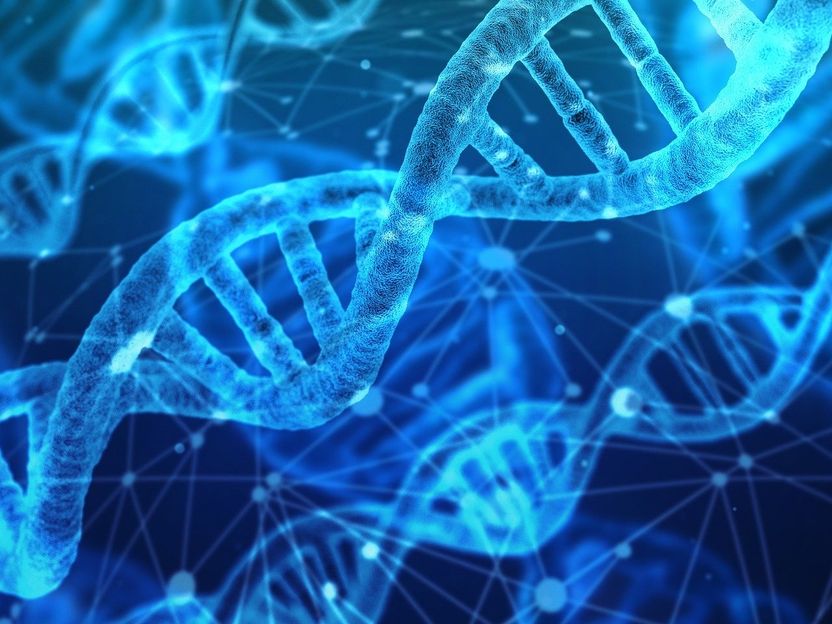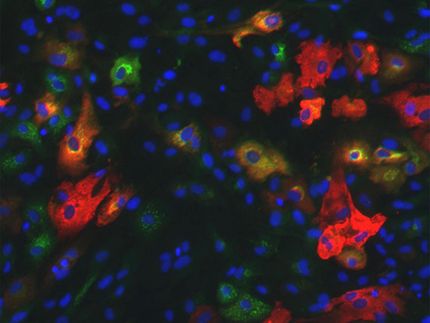Unraveling the genome in 3D-space
Groundbreaking method to map contact points between replicated DNA molecules, thereby elucidating how the genome is folded inside the nucleus of human cells
The cells that make up our body are tiny, each of them measuring only micrometers in diameter. The ensemble of chromosomal DNA molecules that encode the genome, on the other hand, measures almost 2 meters. In order to fit into cells, chromosomal DNA is folded many times. But the DNA is not merely squeezed into the nucleus in a random manor but folded in a specific and highly regulated structure. The spatial organization of chromosomal DNA enables regulated topological interactions between distant parts, thereby supporting proper expression, maintenance, and transport of the genome across cell generations.

Symbolic image
geralt, pixabay.com
Breaks in our DNA, which can occur spontaneously or result from irradiation or chemical insults, can lead to severe problems since they foster mutations and can ultimately lead to cancer. But not every DNA break has disastrous consequences, since our cells have ingenious ways of repairing the damage. One of the main DNA repair pathways involves copying the missing information on the damaged DNA from the replicated sister chromatid. For this to occur, the two DNA molecules of sister chromatids need to come close together at the exact same genomic position. How the two DNA molecules are organized relative to each other to support this important repair pathway, however, has remained unclear.
The team around Daniel Gerlich developed a method that solves this problem. "Current methods to map the folding of DNA have a serious blind spot: They are not able to distinguish identical copies of DNA molecules. Our approach to solve this was to label DNA copies in a way such that we can discriminate them by DNA sequencing" explains Michael Mitter, doctoral student in Dr. Gerlich’s lab and first author of the current publication in Nature. Using this approach, the researchers were able to create the first high resolution map of contact points between replicated chromosomes.
“With this new method, we can now study the molecular machinery regulating the conformation of sister chromatids, which will provide insights into the mechanics underlying the repair of DNA breaks and the formation of rod-shaped chromosomes in dividing cells, which is required for proper transport the genome to cell progeny,” says Daniel Gerlich about the project, which is financed by the Vienna Science and Technology Fund (WWTF) and was a fruitful collaboration of several research groups at the Vienna BioCenter, including the Ameres and Goloborodko labs at IMBA, and the Peters lab at the neighboring Institute of Molecular Pathology (IMP).
Original publication
Most read news
Original publication
Organizations
Other news from the department science

Get the life science industry in your inbox
By submitting this form you agree that LUMITOS AG will send you the newsletter(s) selected above by email. Your data will not be passed on to third parties. Your data will be stored and processed in accordance with our data protection regulations. LUMITOS may contact you by email for the purpose of advertising or market and opinion surveys. You can revoke your consent at any time without giving reasons to LUMITOS AG, Ernst-Augustin-Str. 2, 12489 Berlin, Germany or by e-mail at revoke@lumitos.com with effect for the future. In addition, each email contains a link to unsubscribe from the corresponding newsletter.





















































